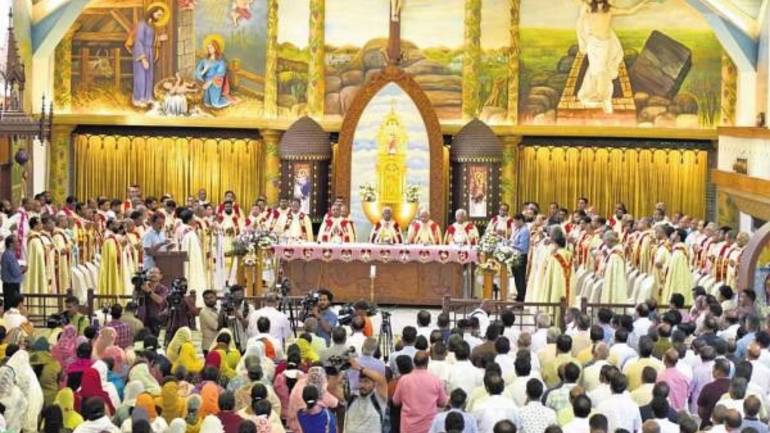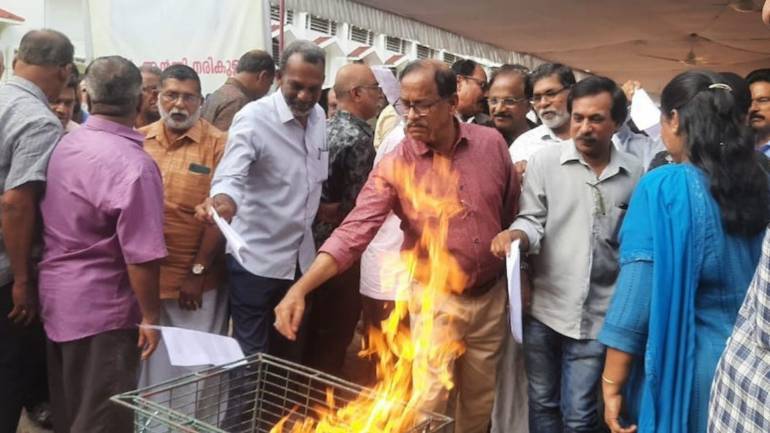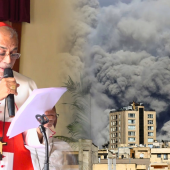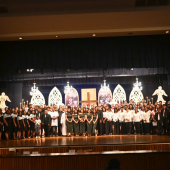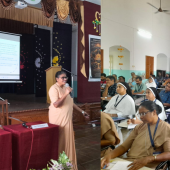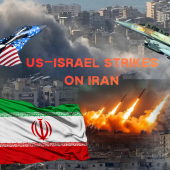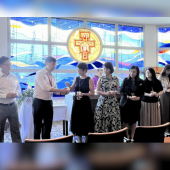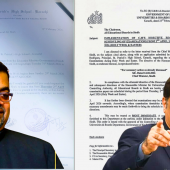India: Vatican delegate announces a deadline for the Syro-Malabar church to observe the liturgical norms on Sunday
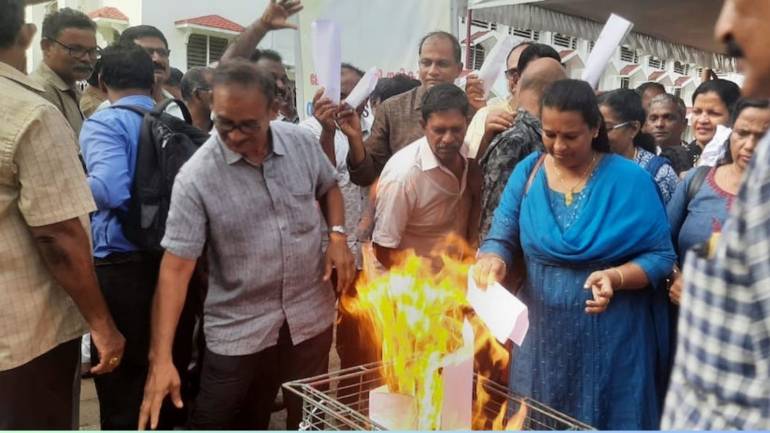
Archbishop Cyril Vasil, the Vatican delegate, in his letter on August 17, 2023, insisted the Syro-Malabar Catholic priests could face ecclesiastical sanctions if they refused to observe the Vatican's authorized Sunday liturgical rules.
Priests from the Syro-Malabar Church have appealed to the Vatican's Secretariat of State regarding a liturgical decision that he described as "non-ethical."
Pope Francis gave Archbishop Cyril Vasil authority to instruct priests in the Archdiocese of Ernakulam-Angamaly to "implement the synodal decision on the mode of celebration of Holy Qurbana from August 20, 2023."
The archbishop stated, "Any disobedience to this order will be considered voluntary, personal, and culpable disobedience to the Holy Father. Therefore, it is hereby intimated to each of you personally that noncompliance with this direction will inevitably invite further disciplinary actions."
An Eastern Catholic Syro-Malabar Catholic Church liturgical dispute over the implementation of a new uniform mode of the parish's Eucharistic liturgy, known as the Holy Qurbana, has been going on for years.
Uniformity is a compromise between the Syro-Malabar tradition, in which the priest faces east (ad orientem), and some churches' post-Vatican II practice, where the priest faces the people during the liturgy (versus populum).
According to the new mode of worship, the priest is facing the congregation during the Word Liturgy, faces the altar during the Eucharist Liturgy, and faces the congregation after Communion.
Even though Pope Francis has explicitly urged the archeparchy to adopt the uniform mode, many priests and laypeople in the Ernakulam-Angamaly archeparchy oppose the change and want their preferred liturgy facing the people acknowledged as a valid variant for over 50 years.
In the archeparchy, the new liturgy has sparked street brawls, hunger strikes, and cardinals being burned in effigy. The only massive resistance to the new liturgy is among the 35 dioceses of the Church.
A deteriorating situation in recent months—riots in the streets, the burning of an effigy of a cardinal, and the lockdown of the archeparchy's cathedral after violence—led Pope Francis to dispatch Slovakian Archbishop Vasil to address the issue.
Archbishop Vasil faced protestors soon after arriving on August 4, but he assured them that the Church would have sole authority over the liturgy.
On August 5, he urged priests and laity to pray the Rosary, fast, and pray before the Eucharist to end the conflict.
But most parishes in Ernakulam-Angamaly refused to read the letter from their pulpits, as directed by Archbishop Vasil.
Clerics have been instructed by Archbishop Vasil in his letter dated August 17 to read from the pulpit a March letter from Pope Francis on this subject and confirm that they have done so to the diocesan officials.
Also, the archbishop said that some priests in Ernakulam-Angamaly might have omitted prayers from the Holy Qurbana liturgical service in honor of Pope Francis, the major archbishop of the Syro-Malabar church, or the local apostolic administrator, which could be viewed as schism, and he warned priests that if the practice continued, excommunication was possible.
Archbishop Vasil said, "I remind you, brother priests, to pray ardently and think seriously about your pledge of obedience taken at the time of your sacred ordination."
He urged the priests "to respect legitimate authority, set a good example for the faithful", and live a "life worthy of the Sacred Order that God had given to the Church and that the ecclesiastical authorities were in charge of administering."
Some protesters in Ernakulam-Angamaly have been opposed to the letter since it was published on Thursday. Photos have circulated online showing protesters burning the letter.
In response to Vasil, one priest of the archeparchy, Father Joice Kaithakottil, wrote a response that has circulated among Syro-Malabar priests and laity.
According to the priest, he is unlikely to follow an instruction from Archbishop Vasil. Instead, he argued that Pope Francis had not explicitly required priests to follow the decisions of a synod of bishops within the Syro-Malabar Church, which he questioned Vasil's authority over.
As Kathakottil pointed out, "priests, laity, and religious" in the archeparchy had already expressed to the Holy Father their concerns about the non-ethical decision of the synod as well as the Dicastery for the Oriental Churches a number of times, and we have appealed to the Secretary of State after your arrival in India."
Kaithakottil wrote, "Our church is a sui iuris church, and we have requested many times for the Synod to reconsider the decision, continue the dialogue, and reach an amicable solution acceptable to all of us. There is no room for Archbishop Vasil to give an order to the priests of the Archdiocese of Ernakulam-Angamaly. You said in your first circular that Pope Francis has personally appointed you to be the Pontifical Delegate. Whatever the damage it may cause to us, as you say, we demand that you publish the letter of the Holy Father appointing you as Pontifical Delegate."
"Let the Archdiocesan faithful know clearly the authority delegated to you by the pope," he said.
He added, "What is your capacity to order as long as you have not publicly mentioned your administrative power? Even if you are given administrative power, we are not ready to accept a foreigner as our immediate authority in the Archdiocese."
"The major archbishop of the Syro-Malabar church has already spoken enough regarding the celebration of the Mass, and we have politely told him that it is not possible to follow the illegal decision of the Synod, and we do not consider you above the Head of the Church," the priest wrote in the letter.
"How dare you order us not to conduct any public celebration of the Holy Mass? Our church has been built by our forefathers for our worship, and what right do you have to order us to close down the church, which is the result of our hard work?" he added.
He noted, "We have already communicated to Pope Francis that our conscientious decision is not to follow the Synodal decision that is taken, violating all the procedures and neglecting the spirit of the Synodal way."
A major archbishop of the Syro-Malabar Catholic Church sets his see in Ernakulam-Angamaly, which is the largest eparchy and most prominent in the Syro-Malabar Church, where around half a million members reside.
Radio Veritas Asia (RVA), a media platform of the Catholic Church, aims to share Christ. RVA started in 1969 as a continental Catholic radio station to serve Asian countries in their respective local language, thus earning the tag “the Voice of Asian Christianity.” Responding to the emerging context, RVA embraced media platforms to connect with the global Asian audience via its 21 language websites and various social media platforms.





